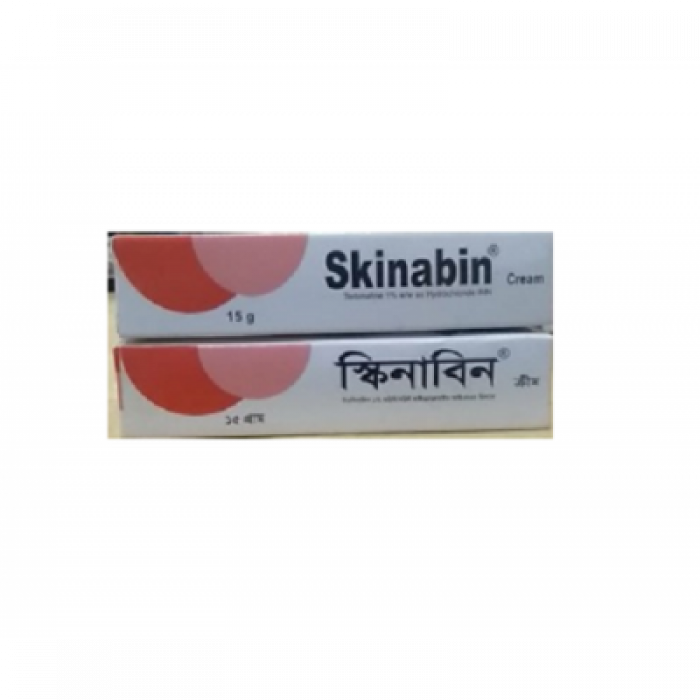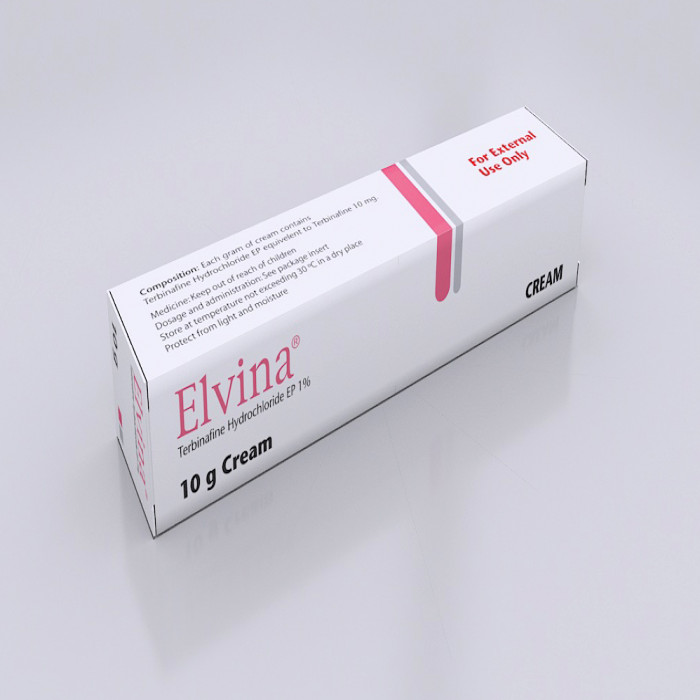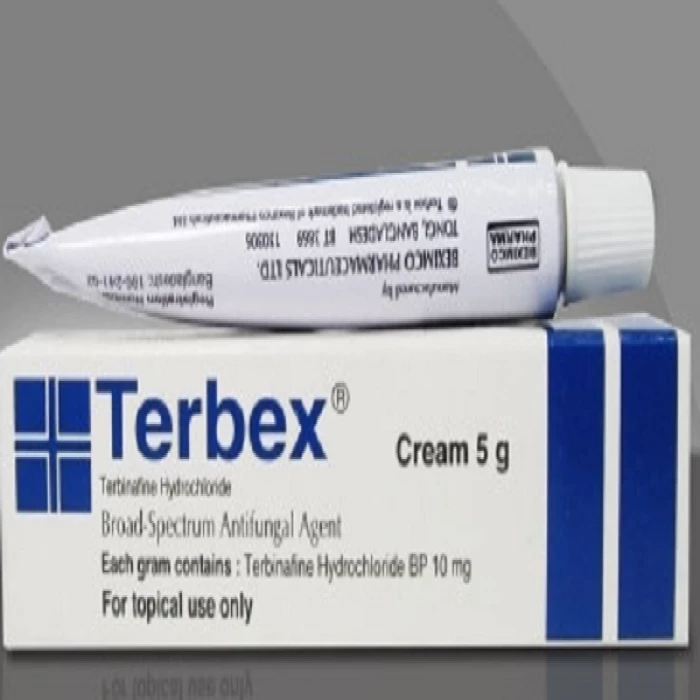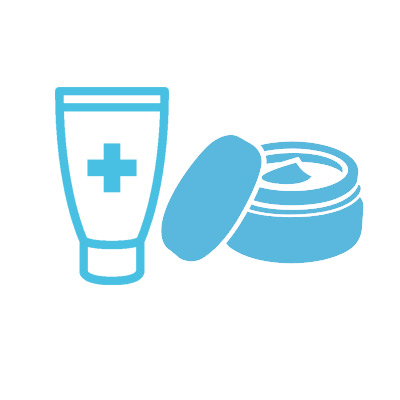
✔ 100% Authentic Product
👁️ Currently Viewing 1019
100% Genuine Products, Guaranteed
Safe & Secure Payments, Always
Fast, Secure & Efficient Delivery
Proper Packaging
 Cash on Delivery - All over Bangladesh
Cash on Delivery - All over Bangladesh Regular Delivery - 12-24 Hours, Dhaka City*
Regular Delivery - 12-24 Hours, Dhaka City* Regular Delivery - 24-48 Hours, All Over Bangladesh*
Regular Delivery - 24-48 Hours, All Over Bangladesh* ফ্রি ডেলিভারিঃ - ৯৯৯ টাকা+ অর্ডারে, ঢাকা
শহরে
ফ্রি ডেলিভারিঃ - ৯৯৯ টাকা+ অর্ডারে, ঢাকা
শহরে ফ্রি ডেলিভারিঃ - ২৯৯৯ টাকা+ অর্ডারে, ঢাকার
বাহিরে
ফ্রি ডেলিভারিঃ - ২৯৯৯ টাকা+ অর্ডারে, ঢাকার
বাহিরে
✅ Description:
Indications
Terbinafine tablet: This tablet is indicated for the treatment of onychomycosis of the toenail or fingernail due to dermatophytes (tinea unguium).
Terbinafine granules: This is indicated in Tinea Capitis.
Terbinafine cream: Fungal infection of the skin caused by Trichophyton (e.g. T. rubrum, T. mentagrophytes, T. verrucosum, T. violaceum), Microsporum canis and Epidermophyton floccosum. Yeast infections of the skin, principally those caused by the genus Candida (e.g. C. albicans). Pityriasis (tinea) versicolor due to Pityrosporum orbiculare (also known as Malassezia furfur).
Pharmacology
Terbinafine, an antifungal Allylamine, inhibits the formation of Ergosterol (an important component of fungi cell membranes) by inhibiting the Squalene Epoxidase enzyme. This causes fungal cell death mostly due to increased membrane permeability caused by high levels of Squalene buildup, rather than Ergosterol insufficiency. Terbinafine hydrochloride may be fungicidal depending on the medication concentration and the fungus species tested in vitro. The clinical value of in vitro data, on the other hand, remains unknown. Terbinafine has been demonstrated to be effective against the majority of strains of microorganisms.
Dosage & Administration
Terbinafine tablet:
For the treatment of fingernail onychomycosis: Terbinafine 250 mg (one tablet), once daily for 6 weeks.
For the treatment of toenail onychomycosis: Terbinafine 250 mg (one tablet), once daily for 12 weeks.
The optimal clinical effect is seen some months after mycological cure and cessation of treatment. This is related to the period required for the outgrowth of healthy nails.
Terbinafine granules:
Body Weight: <25 kg: 125 mg/day up to 6 weeks
Body Weight: 25-35 kg: 187.5 mg/day up to 6 weeks
Body Weight: >35 kg: 250 mg/day up to 6 weeks
Terbinafine cream: Terbinafine cream can be applied once or twice daily. Cleanse and dry the affected areas thoroughly before the application of the terbinafine cream. Apply the cream to the affected skin and the surrounding area in a thin layer and rub it lightly. In the case of intertriginous infections (submammary, interdigital, intergluteal, inguinal) the application may be covered with a gauze strip, especially at night. The likely durations of treatment are as follows:
Tinea corporis, cruris: 1 to 2 weeks
Tinea pedis: 1 week
Cutaneous candidiasis: 2 weeks
Pityriasis versicolor: 2 weeks
Relief of the clinical symptoms usually occurs within a few days. Irregular use or premature discontinuation of treatment carries the risk of recurrence. If there are no signs of improvement after two weeks, the diagnosis should be verified.
Interaction
Terbinafine inhibits the CYP450 2D6 isozyme in vivo, according to research. Tricyclic antidepressants, selective serotonin reuptake inhibitors, beta-blockers, antiarrhythmics class 1C (e.g., flecainide and propafenone), and monoamine oxidase inhibitors Type B are among the drugs processed mostly by the CYP450 2D6 isozyme. Co-administration of terbinafine should be done with caution, and the dose of the 2D6-metabolized medication may need to be reduced.
Contraindications
Terbinafine tablets and cream are not recommended for people who are hypersensitive to terbinafine.
Side Effects
Gastrointestinal symptoms (including diarrhea, dyspepsia, and stomach discomfort), liver test abnormalities, rashes, urticaria, itching, and taste alterations are among the side effects recorded. In general, the side effects were minor and temporary, and they did not necessitate stopping the medication. Idiosyncratic and symptomatic hepatic injury, and more rarely, cases of liver failure, some resulting to death or liver transplant, serious skin responses, severe neutropenia, thrombocytopenia, angioedema, and allergic reactions, according to worldwide experience with terbinafine use (including anaphylaxis). Malaise, weariness, vomiting, and arthralgia are some of the other side effects that have been documented.
Pregnancy & Lactation
Terbinafine tablet: There are no adequate and well-controlled studies in pregnant women. Because animal reproduction studies are not always predictive of human response, and because treatment of onychomycosis can be postponed until after pregnancy is completed, it is recommended that terbinafine not be initiated during pregnancy. After oral administration, terbinafine is present in the breast milk of nursing mothers. Treatment with terbinafine is not recommended for nursing mothers.
Terbinafine cream: Foetal toxicity and fertility studies in animals suggest no adverse effects. There is no clinical experience with terbinafine in pregnant women; therefore, unless the potential benefits outweigh any potential risk, terbinafine should not be administered. Terbinafine is excreted in breast milk and therefore mothers should not receive terbinafine treatment whilst breastfeeding.
Precautions & Warnings
Warnings-
Terbinafine tablets: Rare cases of liver failure, some leading to death or liver transplant, have occurred with the use of terbinafine tablets for the treatment of onychomycosis in individuals with and without preexisting liver disease. In the majority of liver cases reported in association with terbinafine use, the patients had serious underlying systemic conditions and an uncertain causal association with terbinafine. The severity of hepatic events and/or their outcome may be worse in patients with active or chronic liver disease. Treatment with terbinafine tablets should be discontinued if there is biochemical or clinical evidence of liver injury. There have been isolated reports of serious skin reactions (e.g., Stevens-Johnson Syndrome and toxic epidermal necrolysis). If progressive skin rash occurs, treatment with terbinafine should be discontinued.
Terbinafine cream: Terbinafine cream is for external use only. Contact with the eyes should be avoided.
Precautions: Terbinafine is not recommended for patients with chronic or active liver disease. Before prescribing Terbinafine, the pre-existing liver disease should be assessed. Hepatotoxicity may occur in patients with and without pre-existing liver disease. Pretreatment serum transaminase (ALT and AST) tests are advised for all patients before taking terbinafine tablets.
Storage Conditions
Store in a cool and dry place, below 30°C, protect from light.
⚠️Disclaimer:
At ePharma, we’re committed to providing accurate and accessible health information. However, all content is intended for informational purposes only and should not replace medical advice from a qualified physician. Please consult your healthcare provider for personalized guidance. We aim to support, not substitute, the doctor-patient relationship.










